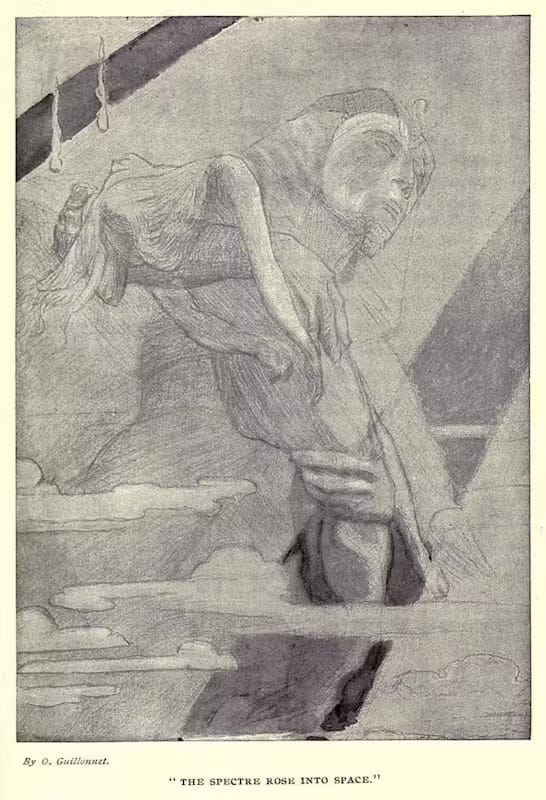Issue 38: The Art of Self-Surveillance
I see...me
- ARBITRAGE
- Running a Zero Waste Flywheel
- Do Less, Better (with leverage!)
- Issue 38: The Art of Self-Surveillance
Food For Thought
The word "surveillance" has rightly earned it's negative connotation in the modern world of cameras and always-on gadgets. The concern that at any moment, any mistake you make, or words you might say in haste (especially on planes, due to their stressful societal connotations) will be blasted around the world instantly is not unfounded. Virality seems to be the meta popular song of our era. It changes it's face, but it is always playing on the front pages of our news websites and social media feeds. Worse yet, the viewers of these surveil style videos will generally (and nearly immediately) do a subject-object replacement, in which you as a complex human subject who has lived an entire life are replaced by an objective set of (generally negative) attributes. In other words, after five seconds, the viewer has already made the locked in decision if you are hero or villain. The suspension of disbelief only goes as far for people we believe to be in our in-group. Everyone else is fair game to be a victim of game theory; as the public becomes judge, jury, and executioner in the comment sections.
In this issue, I'd like to make a short argument in favor of another type of surveillance – surveillance of the self.
The etymology of the word "surveillance" comes from the French words "sur" (over) "veiller" (watch) – to watch over. Surveillance has a much more positive connotation sibling word – vigilance. Vigilance is generally seen as a positive trait, and we conflate vigilance as a healthy habit: to be vigilant of our health, of our finances, of the status of our relationships. Vigilance is intentionally keeping sober, the attempt to make good decisions in the face of a world that has bad options always within an arms reach – sugar, distraction, inebriation, escapism.
Another, more automatic version of surveillance is homeostasis. Homeostasis is the role of every living being to be "vigilant" of its vitals: temperature, exhaustion, oxygen levels, etc. A creature is exposed to change constantly, and the role of the systems that govern homeostasis is to ameliorate those changes, to use internal resources to reflect the external state changes. When it's cold, we shiver. When it's hot, we sweat. Without these automatic systems, a creature quickly snowballs, and dies. In fact, these systems cost energy themselves to run, which means that all creatures realize the importance of homeostasis in survival and reproduction, despite its costs.
This high-level, nuanced look at the concept of surveillance is critical. Instead of a binary between privacy and everything being publicized widely, it shows us that surveillance is in reality a spectrum. To decide if a type of surveillance is good or bad, we need to look at what its end goals are: to help or to harm. Inside this gradient exist many forms: the idea of a God always watching you sin even when you're alone, to the role of entertaining a silent text box of chat messages on websites like Twitch for hundreds to thousands of other people aslo sitting behind computer screens, to journaling/reflecting on what you've spent your day doing.
I define modern self-surveillance as the art of mobilizing your camera technology to increase your efficacy. In issue #35, I wrote a piece about the role of zero-cost flywheels, and how integral they are to the solo entrepreneur's toolkit. The process is relatively straightforward. When you plan to lock in for a block of deep work, you turn on the screen recording feature on your computer on, and possibly your camera and microphone if you so desire. The reasoning is as follows: you focus deeper just by knowing that you are keeping watch over your own actions (the cost of context switching on camera will prevent you from fooling around nearly as much meaning that you finish the work you set out to do), you increase the "revenue" of your work for no extra work cost (knowledge work is abstract, but the process is very real – so having record of it is valuable. In addition you get to work on deliberate practice and spaced repetition), and you get "better" at the skill of being on camera (so you won't be surprised when someone whips out a camera in your face in public).
Each of the above could be its own essay, but in the spirit of time, I'll leave them at their top level forms. This self-surveillance is cheap, and costs minimal computer resources and storage in a world where we punt terabytes of data on giant info logs.
It is important to note that this means that these videos can be stored, and destroyed, locally on your machines. And if you wish, you can easily convert into sharing in a venue that benefits you and aligns with your values and goals.
In sum, if you do what I do (write, code, think), and you were planning on doing all that stuff anyway, consider screen recording and turning on your camera while you do your deep work.
To put my money where my mouth is, here is a short video of me writing this literal newsletter issue you are reading in my bed (I like to laze while writing). Hi!
how the "sausage" is made
On My Nightstand - What I'm Reading
To "fight" homeostasis, is to only cause a stronger allergic response in the swing back of the pendulum. The goal of good habit building is to slowly change what homeostasis means in your body. A new normal is a marathon of right moves, not a sprint.
Homeostasis, remember, doesn’t distinguish between what you would call change for the better and change for the worse. It resists all change.
-- Mastery: The Keys to Success and Long-Term Fulfillment (affiliate link)

Even with what was said above in the Food for Thought section, the goal of being always on can quickly devolve into hoarding. Keep in mind the slight nuance between surveillance for harm and vigilance for good. Choose wisely.
She was allowed to turn off the SeeChange cameras in the room, but she found she rarely did. She knew that the footage she might gather, herself, for instance about movements during sleep, could be valuable someday, so she left the cameras on. It had taken a few weeks to get used to sleeping with her wrist monitors—she’d scratched her face one night, and cracked her right screen another—but Circle engineers had improved the design, replacing the rigid screens with more flexible, unbreakable ones, and now she felt incomplete without them.
-- The Circle (affiliate link)
This fine line of good/bad surveillance becomes a clear, bright red one when it comes to companies making their way into our lives for their profit. This is why companies leverage popularity as metric, it is simply guaranteed profit, through the conversation of mega fans, and those who can be converted. More eyes = more ads. The art of self-surveillance, while not entirely distinct, is separated from the sole goal of profit motivation. The goal is to make more intentional actions with a realistic set of data. The goal is not the highlight reel, but to find meaning in what we already do.
In America, before the internet, the division between our public and private lives was usually tied to our physical location—our work and our home. The context in which we were communicating with our friends and family was clear. At work, we were professionals, and at home we were husbands, wives, sons, or daughters. On the internet, we organize information by its popularity in an attempt to determine its validity. If a website has been referenced by many other websites, then it is generally determined to be more valuable or accurate. Feelings expressed on social media are quantified, validated, and distributed in a similar fashion. Popular expression becomes the most valuable expression. Social media businesses represent an aggressive expansion of capitalism into our personal relationships. We are asked to perform for our friends, to create things they like, to work on a “personal brand”—and brands teach us that authenticity is the result of consistency. We must honor our “true self” and represent the same self to all of our friends or risk being discredited. But humanity cannot be true or false. We are full of contradictions and we change. That is the joy of human life. We are not brands; it is simply not in our nature.
-- How to Turn Down a Billion Dollars: The Snapchat Story (affiliate link)

Poem
If he finds himself backing himself into a corner /
The room itself must be so, so small /
Because if in his own volition he can become claustrophobic /
Then the landscape of his mind was not expansive at all
Thanks for reading, and see you next Sunday!
ars longa, vita brevis,
Bram
P.S. If you like what you read on this newsletter, forward it to a friend! It really helps!




